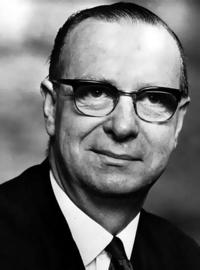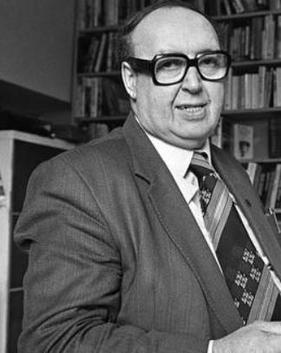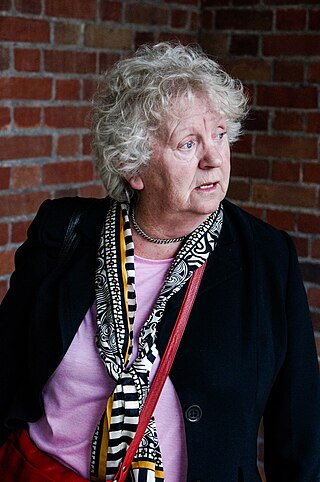
Seamus Justin Heaney was an Irish poet, playwright and translator. He received the 1995 Nobel Prize in Literature. Among his best-known works is Death of a Naturalist (1966), his first major published volume. American poet Robert Lowell described him as "the most important Irish poet since Yeats", and many others, including the academic John Sutherland, have said that he was "the greatest poet of our age". Robert Pinsky has stated that "with his wonderful gift of eye and ear Heaney has the gift of the story-teller." Upon his death in 2013, The Independent described him as "probably the best-known poet in the world".

Brian Patrick Friel was an Irish dramatist, short story writer and founder of the Field Day Theatre Company. He had been considered one of the greatest living English-language dramatists. He has been likened to an "Irish Chekhov" and described as "the universally accented voice of Ireland". His plays have been compared favourably to those of contemporaries such as Samuel Beckett, Arthur Miller, Harold Pinter and Tennessee Williams.

John Hume was an Irish nationalist politician in Northern Ireland and a Nobel Peace Prize laureate. A founder and leader of the Social Democratic and Labour Party, Hume served in the Northern Ireland Parliament; the Northern Ireland Assembly including, in 1974, its first power-sharing executive; the European Parliament and the United Kingdom Parliament. Seeking an accommodation between Irish nationalism and Ulster unionism, and soliciting American support, he was both critical of British government policy in Northern Ireland and opposed to the republican embrace of "armed struggle". In their 1998 citation, the Norwegian Nobel Committee recognised Hume as an architect of the Good Friday Agreement. For himself, Hume wished to be remembered as having been, in his earlier years, a pioneer of the credit union movement.

Gerard Fitt, Baron Fitt, was a politician from Belfast, Northern Ireland. He was a founder and the first leader of the Social Democratic and Labour Party (SDLP), a social democratic and Irish nationalist party.
The Northern Ireland Labour Party (NILP) was a political party in Northern Ireland which operated from 1924 until 1987.

Patrick Joseph Devlin was an Irish socialist, labour and civil rights activist and writer from Belfast. He was a founding member of the Social Democratic and Labour Party (SDLP), a Stormont MP and a member of the 1974 Power Sharing Executive.
Events in the year 1969 in Ireland.

Free Derry was a self-declared autonomous Irish nationalist area of Derry, Northern Ireland that existed between 1969 and 1972 during the Troubles. It emerged during the Northern Ireland civil rights movement, which sought to end discrimination against the Irish Catholic/nationalist minority by the Protestant/unionist government. The civil rights movement highlighted the sectarianism and police brutality of the overwhelmingly Protestant police force, the Royal Ulster Constabulary (RUC).

Patrick Joseph Devlin was an Irish socialist, labour and civil rights activist and writer from Belfast. He was a founding member of the Social Democratic and Labour Party (SDLP), a Stormont MP and a member of the 1974 Power Sharing Executive.

Nell McCafferty was an Irish journalist, playwright, civil rights campaigner and feminist. She wrote for The Irish Press, The Irish Times, Sunday Tribune, Hot Press and The Village Voice.
The Northern Ireland Civil Rights Association (NICRA) (Irish: Cumann Cearta Sibhialta Thuaisceart Éireann) was an organisation that campaigned for civil rights in Northern Ireland during the late 1960s and early 1970s. Formed in Belfast on 9 April 1967, the civil rights campaign attempted to achieve reform by publicising, documenting, and lobbying for an end to discrimination against Catholics in areas such as elections (which were subject to gerrymandering and property requirements), discrimination in employment, in public housing and abuses of the Special Powers Act.
People's Democracy was a political organisation that arose from the Northern Ireland civil rights movement. It held that civil rights could be achieved only by the establishment of a socialist republic for all of Ireland. It demanded more radical reforms of the government of Northern Ireland than the Northern Ireland Civil Rights Association.
Ivan Averill Cooper was a nationalist politician from Northern Ireland. He was a member of the Parliament of Northern Ireland and a founding member of the Social Democratic and Labour Party (SDLP). He is best known for leading the civil rights march on 30 January 1972 that developed into the Bloody Sunday massacre.
Events during the year 1994 in Northern Ireland.
Events during the year 1969 in Northern Ireland.
Marian Donnelly is a former president of the Workers' Party and was a member of the former District Policing Partnership for the Magherafelt district of Northern Ireland.

Miriam Daly was an Irish republican and communist activist as well as a university lecturer who was assassinated by the loyalist Ulster Defence Association (UDA) in 1980.
The Northern Ireland civil rights movement dates to the early 1960s, when a number of initiatives emerged in Northern Ireland which challenged the inequality and discrimination against ethnic Irish Catholics that was perpetrated by the Ulster Protestant establishment. The Campaign for Social Justice (CSJ) was founded by Conn McCluskey and his wife, Patricia. Conn was a doctor, and Patricia was a social worker who had worked in Glasgow for a period, and who had a background in housing activism. Both were involved in the Homeless Citizens League, an organisation founded after Catholic women occupied disused social housing. The HCL evolved into the CSJ, focusing on lobbying, research and publicising discrimination. The campaign for Derry University was another mid-1960s campaign.
Robert Martin McBirney QC, known as Martin McBirney, was a magistrate and politician from Northern Ireland who was assassinated.
Ruth Carr, also known as Ruth Hooley, is a Northern Irish writer.








